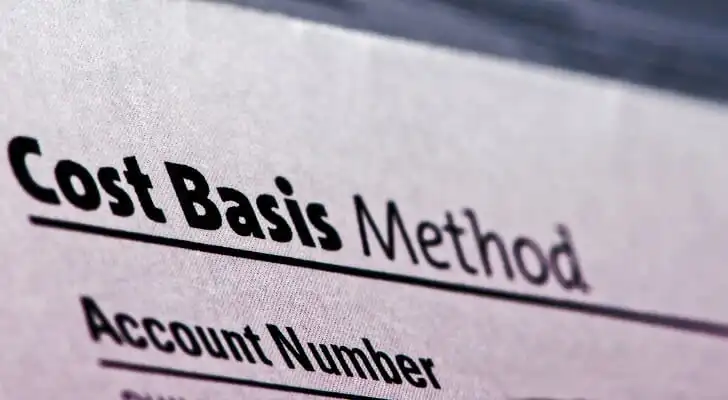The cost basis of inherited stock refers to the value assigned to shares received from a deceased individual, typically based on the stock’s fair market value on the date of death. This valuation method, known as a step-up in basis, can affect capital gains taxes if the stock is later sold. Unlike gifted shares, which retain the original owner’s cost basis, inherited stock often reduces potential taxable gains for heirs. If an estate chooses the alternate valuation date, the basis may reflect the stock’s value six months after death instead.
Consider working with a financial advisor on estate planning challenges, such as how to value things you inherit.
Cost Basis Definition
Cost basis represents the amount initially invested in an asset, used to determine capital gains or losses when it is sold. Understanding cost basis is essential for tax planning, as it directly influences how gains and losses are reported to the IRS.
For stocks, it generally includes the purchase price plus any associated costs, such as brokerage fees or commissions. This figure serves as the reference point for tax calculations, ensuring that only the profit or loss from the sale is taxed. A higher cost basis reduces taxable gains, whereas a lower one increases them. Over time, certain events—such as stock splits, dividend reinvestments or corporate mergers—can adjust the cost basis, requiring careful record-keeping.
What Is the Cost Basis of Inherited Stock?
Finding the cost basis of inherited stock may sound intimidating, but it’s actually simple. It depends on the value of the stock at the time the previous owner died. The only exception is if the estate chose an alternate valuation date. In that case, you determine the value of the stock six months after the death date.
For example, let’s say someone bought Apple stock in early 1990. She purchased it at around $0.30 per share and then sold it roughly 30 years later before she died. The owner would owe taxes on the gains made by the stock. But suppose she included the stock in her will instead of selling it, and bequeathed it to an heir. In this case, the cost basis would reset based on the deceased’s date of passing (or the chosen valuation date). This adjustment is known as the stepped-up basis. Thanks to it, the heir would only owe capital gains tax on gains made after inheriting the stock. That tax would only come due after they sell the stock—not when they inherit it.
Suppose a person buys shares of a company for $8,000 in total, which is worth $64,000 by the time they die. The stock is passed down to an heir and the cost basis resets to $64,000, which means the heir will not have to pay taxes on the $56,000 capital gain. If they choose to sell the stock immediately, they won’t owe capital gains tax on the pre-inheritance gains. If they sell the stock 10 years later when it’s worth $100,000, they would pay tax on the $36,000 of investment growth realized after inheriting the assets. This makes the stepped-up basis a valuable part of estate planning.
How to Calculate the Cost Basis of an Inherited Stock
Once you inherit stock, you’ll need to research its pricing. In particular, you have to find its per-share price on the date of the previous owner’s death. This is even more important if some time has elapsed since the person passed down the stock to you. Even if it’s been a while, you should still have access to that information. You can contact the investor relations department of the stock’s company or search through sources that report financial news.
Whether you inherited the stock through a brokerage, will or trust, calculating the cost basis stays the same. However, the stepped-up rule only applies to inherited stocks (and other financial securities) passed on from a deceased person’s estate, not gifts or irrevocable trusts made before the death.
Keep in mind: Any additional shares purchased separately from the inherited stock do not count toward its cost basis. For example, you might have enrolled in a program that automatically reinvests your dividends. Any new shares are separate from the old ones, though. Failing to separate these shares could lead to higher capital gains taxes.
Calculating Valuation for Estate Tax Purposes
Estate taxes apply only to estates that exceed the exclusion limit set by the IRS. The 2025 threshold is $13.99 million for individuals and $27.98 million for married couples. However, only the amount that goes over the minimum will actually face the tax. It’s also a progressive tax, with a beginning rate of 18% and a capped rate of 40%. You can review the 2025 federal estate tax rates in our guide.
A valuation of the stock’s cost basis helps determine if the estate exceeds those numbers. But as long as the estate’s overall value remains below limits, the heir won’t face taxes as part of the inheritance.
Other Tax Considerations for Inherited Stocks
You might not need to search for the cost basis of the inherited stock. If the deceased individual’s executor filed a tax return for the estate, then you can use the values reported there as the cost basis. If you’re not so lucky, you can still find the data on financial news reports.
Also, some states require heirs to submit a tax waiver for their inherited accounts. They can also vary in their estate and tax laws. Talk with a financial professional or your state’s revenue or tax department to find the right documents.
Bottom Line
Losing someone in your life is a difficult experience. It’s already enough that you have to deal with the emotional burden, but finances can make the stress unbearable. Many people will want to take advantage of your lack of knowledge and confusion if they know you’ve come into any money after a loved one’s passing. Creditors and those selling investments may try to manipulate you. Don’t navigate this kind of situation alone. Talk to a financial advisor. They can guide you through the process and take the pressure off your shoulders.
Estate Tax Planning Tips
- A financial advisor can be a valuable asset when you need to navigate the complexities of estate planning and retirement. Lacking the right knowledge can leave you scrambling when taxes begin to hit. Finding a financial advisor doesn’t have to be hard. SmartAsset’s free tool matches you with vetted financial advisors who serve your area, and you can have a free introductory call with your advisor matches to decide which one you feel is right for you. If you’re ready to find an advisor who can help you achieve your financial goals, get started now.
- If you want to set up and plan your retirement goals, SmartAsset’s retirement calculator can help you figure out how much you will need to save to retire comfortably.
- Estate planning involves multiple moving parts—the stepped-up basis loophole is just one. Estate taxes are another. Researching ahead of time will allow you to work through your estate planning or legacy planning as you see fit.
Photo credit: ©iStock.com/courtneyk, ©iStock.com/WilshireImages, ©iStock.com/kazuma seki


